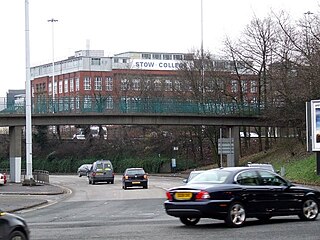Negligence is a failure to exercise appropriate care expected to be exercised in similar circumstances.

The Alien Tort Statute, also called the Alien Tort Claims Act (ATCA), is a section in the United States Code that gives federal courts jurisdiction over lawsuits filed by foreign nationals for torts committed in violation of international law. It was first introduced by the Judiciary Act of 1789 and is one of the oldest federal laws still in effect in the U.S.

Piercing the corporate veil or lifting the corporate veil is a legal decision to treat the rights or duties of a corporation as the rights or liabilities of its shareholders. Usually a corporation is treated as a separate legal person, which is solely responsible for the debts it incurs and the sole beneficiary of the credit it is owed. Common law countries usually uphold this principle of separate personhood, but in exceptional situations may "pierce" or "lift" the corporate veil.

Salomon v A Salomon & Co Ltd[1896] UKHL 1, [1897] AC 22 is a landmark UK company law case. The effect of the House of Lords' unanimous ruling was to uphold firmly the doctrine of corporate personality, as set out in the Companies Act 1862, so that creditors of an insolvent company could not sue the company's shareholders for payment of outstanding debts.

Berkey v. Third Avenue Railway Co 244 N.Y. 84 (1926) is a classic veil piercing case by Judge Benjamin N. Cardozo in United States corporate law.
Bowoto v. Chevron Corp. was a lawsuit against Chevron Nigeria Ltd., a subsidiary of Chevron USA, which went to trial in 2008 in the United States District Court for the Northern District of California. The plaintiffs, Nigerian citizens who had been injured during or who had survived human rights violations perpetrated by Nigerian military personnel, alleged that the Chevron subsidiary backed the military action and that the parent company thus should bear liability in US courts for the resultant fallout. The suit was decided on December 1, 2008, when nine jurors unanimously agreed Chevron was not liable for any of the numerous allegations. Judgment was entered the next day, officially exonerating Chevron.

The United Kingdom company law regulates corporations formed under the Companies Act 2006. Also governed by the Insolvency Act 1986, the UK Corporate Governance Code, European Union Directives and court cases, the company is the primary legal vehicle to organise and run business. Tracing their modern history to the late Industrial Revolution, public companies now employ more people and generate more of wealth in the United Kingdom economy than any other form of organisation. The United Kingdom was the first country to draft modern corporation statutes, where through a simple registration procedure any investors could incorporate, limit liability to their commercial creditors in the event of business insolvency, and where management was delegated to a centralised board of directors. An influential model within Europe, the Commonwealth and as an international standard setter, UK law has always given people broad freedom to design the internal company rules, so long as the mandatory minimum rights of investors under its legislation are complied with.

Williams v Natural Life Health Foods Ltd[1998] UKHL 17 is an important English tort law, company law and contract law case. It held that for there to be an effective assumption of responsibility, there must be some direct or indirect conveyance that a director had done so, and that a claimant had relied on the information. Otherwise only a company itself, as a separate legal person, would be liable for negligent information.

Cambridge Water Co Ltd v Eastern Counties Leather plc [1994] 1 All ER 53 is a case in English tort law that established the principle that claims under nuisance and Rylands v Fletcher must include a requirement that the damage be foreseeable; it also suggested that Rylands was a sub-set of nuisance rather than an independent tort, a debate eventually laid to rest in Transco plc v Stockport Metropolitan Borough Council.

Woolfson v Strathclyde Regional Council [1978] UKHL 5 is a UK company law case concerning piercing the corporate veil.

Lubbe v Cape Plc [2000] UKHL 41 is a conflict of laws case, which is also highly significant for the question of lifting the corporate veil in relation to tort victims. In this case it was alleged, and postulated by the House of Lords, that in principle it is possible to show that a parent company owes a direct duty of care in tort to anybody injured by a subsidiary company in a group.
Trustor AB v Smallbone [2001] EWHC 703 (Ch) is a UK company law case concerning piercing the corporate veil.
The corporate veil in the United Kingdom is a metaphorical reference used in UK company law for the concept that the rights and duties of a corporation are, as a general principle, the responsibility of that company alone. Just as a natural person cannot be held legally accountable for the conduct or obligations of another person, unless they have expressly or implicitly assumed responsibility, guaranteed or indemnified the other person, as a general principle shareholders, directors and employees cannot be bound by the rights and duties of a corporation. This concept has traditionally been likened to a "veil" of separation between the legal entity of a corporation and the real people who invest their money and labor into a company's operations.

Chandler v Cape plc [2012] EWCA Civ 525 is a decision of the Court of Appeal which addresses the availability of damages for a tort victim from a parent company, in circumstances where the victim suffered industrial injury during employment by a subsidiary company.
Kiobel v. Royal Dutch Petroleum Co., 569 U.S. 108 (2013), was a United States Supreme Court decision in which the court found that the presumption against extraterritoriality applies to claims under the Alien Tort Claims Act. According to the Court's majority opinion, "it would reach too far to say that mere corporate presence suffices" to displace the presumption against extraterritoriality when all the alleged wrongful conduct takes place outside the United States.
Fletcher v. Atex, Inc., 68 F.3d 1451, is a veil piercing case by Judge José A. Cabranes in corporation law.

Prest v Petrodel Resources Ltd[2013] UKSC 34, [2013] 2 AC 415 is a leading UK company law decision of the UK Supreme Court concerning the nature of the doctrine of piercing the corporate veil, resulting trusts and equitable proprietary remedies in the context of English family law.

VTB Capital plc v Nutritek International Corp[2013] UKSC 5, [2013] 2 AC 337 is an English company law case, concerning piercing the corporate veil for fraud.

Lungowe v. Vedanta Resources plc [2019] UKSC 20 is a UK company law and English tort law case, concerning business liability for human rights violations, environmental damage and the duty of care owed by a parent company.
Jesner v. Arab Bank, PLC, No. 16-499, 584 U.S. ___ (2018), was a case from the United States Supreme Court which addressed the issue of corporate liability under the Alien Tort Statute (ATS). Plaintiffs alleged that Arab Bank facilitated terrorist attacks by transferring funds to terrorist groups in the Middle East, some of which passed through Arab Bank's offices in New York City.












